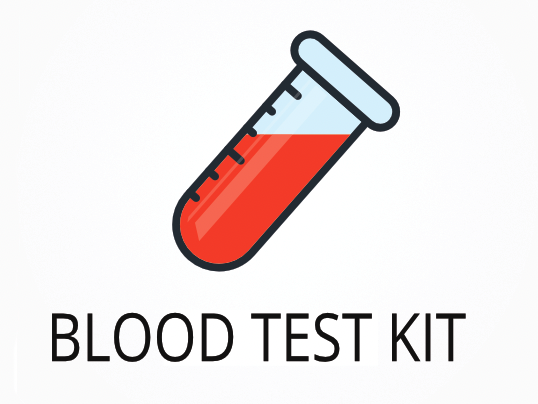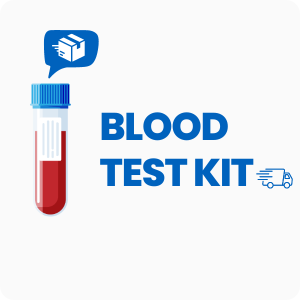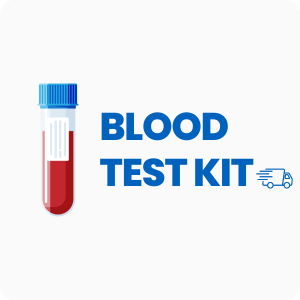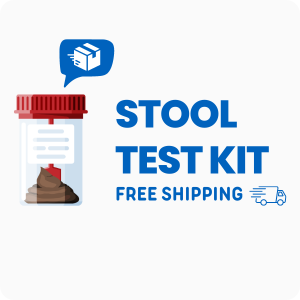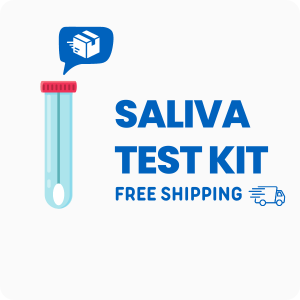Ordering the Cardio Check Profile (CV Health) | Genova
The Cardio Check Profile by Genova is a comprehensive blood test that measures a wide range of cholesterol, lipoproteins, and cardiometabolic markers to help identify risks linked to heart and blood vessel conditions. This test is especially useful for tracking cholesterol types, inflammation, and other factors that can affect arteries, blood pressure, and heart rhythm. Interestingly, this test also measures apolipoproteins, which can reveal hidden risks for artery blockage even when standard cholesterol numbers look normal.
Ordering this test can help you:
- Detect early signs of artery plaque buildup before symptoms appear
- Track changes in cholesterol and triglycerides after starting a new diet or exercise plan
- Monitor inflammation markers that may signal increased risk for heart attack or stroke
- Identify unusual cholesterol patterns that standard tests may miss
- Guide your doctor in choosing the best treatment for high blood pressure or metabolic syndrome
Who Should Consider Advanced Cardiovascular Risk Testing
People who have a family history of heart disease, high cholesterol, or diabetes may benefit from this test. For example, someone who has been told their cholesterol is “borderline” but has a parent who had a heart attack at a young age may want to know more about their own risk.
Ordering this test may also be helpful if you:
- Have been diagnosed with high blood pressure or metabolic syndrome
- Are overweight and want to check for early signs of artery problems
- Have experienced chest pain or palpitations that are not explained by other tests
- Are starting a new cholesterol-lowering medication and want to track your progress
- Have an autoimmune condition, as these can sometimes increase hidden heart risks
This test gives you a detailed look at cholesterol, inflammation, and other markers that can help your doctor spot risks for heart attack, stroke, or artery blockage. Delaying this test could mean missing early changes in your blood that may be easier to manage if caught sooner.
How to Prepare for Advanced Lipid and Cardiometabolic Testing
Fasting for 12 hours before your blood draw is required for the most accurate cholesterol and triglyceride results. Make sure to follow any instructions your doctor or healthcare professional gives you, as these can affect your test results and next steps.
Labs Included When Ordering Your Cardio Check Profile (CV Health) | Genova
| Test Name | Reference Range | What the Test Measures | Low and High Levels of the Marker |
|---|---|---|---|
| Lipid Markers | |||
| Total Cholesterol | < 200 | Measures the total amount of cholesterol in your blood, including LDL and HDL. High levels can increase the risk of artery blockage and heart disease. |
High levels mean a greater chance of plaque buildup in arteries.
Low levels mean possible issues with hormone production or absorption. |
| LDL Cholesterol | < 100 | LDL, or “bad” cholesterol, can build up in artery walls and lead to blockages. This test helps assess risk for heart attack and stroke. |
High levels mean increased risk for artery narrowing and heart attack.
Low levels mean lower risk for artery disease. |
| HDL Cholesterol | > 40 (men), > 50 (women) | HDL, or “good” cholesterol, helps remove LDL from the blood. Higher levels are linked to lower risk of heart disease. |
High levels mean better protection against artery blockage.
Low levels mean higher risk for heart and artery problems. |
| Triglycerides | < 150 | Measures the amount of fat in your blood. High triglycerides can raise the risk for heart disease, especially when combined with low HDL or high LDL. |
High levels mean increased risk for artery disease and pancreatitis.
Low levels mean possible issues with nutrition or absorption. |
| LDL Particle Number and Size | < 1000 (particle number); Large size preferred | Counts the number and size of LDL particles. Small, dense LDL particles are more likely to cause artery plaque than larger ones. |
High particle number or small size means higher risk for artery blockage.
Low particle number or large size means lower risk for heart disease. |
| HDL Particle Number and Size | > 30 (particle number); Large size preferred | Shows how many HDL particles are present and their size. More and larger HDL particles help clear cholesterol from arteries. |
High number or large size means better removal of cholesterol.
Low number or small size means less protection for arteries. |
| VLDL Particle Number and Size | 5-40 | VLDL carries triglycerides in the blood. High levels can increase the risk for artery plaque and metabolic syndrome. |
High levels mean greater risk for artery disease and diabetes.
Low levels mean less fat being carried in the blood. |
| Total Cholesterol/HDL Ratio | < 4.5 | Compares total cholesterol to HDL. A lower ratio means a lower risk for heart disease. |
High ratio means higher risk for artery problems.
Low ratio means better protection against heart disease. |
| Triglycerides/HDL Ratio | < 2.0 | Compares triglycerides to HDL. A higher ratio can signal insulin resistance or risk for metabolic syndrome. |
High ratio means increased risk for diabetes and artery disease.
Low ratio means lower risk for these conditions. |
| Lipoproteins | |||
| Apolipoprotein A1 | > 120 | Apo A1 is the main protein in HDL. Higher levels help remove cholesterol from arteries and lower heart risk. |
High levels mean better cholesterol removal.
Low levels mean higher risk for artery plaque. |
| Apolipoprotein B | < 90 | Apo B is found in LDL and VLDL. High levels are linked to more artery plaque and higher risk for heart attack. |
High levels mean more particles that can cause artery blockage.
Low levels mean lower risk for heart disease. |
| Apo B / Apo A-1 Ratio | < 0.7 | This ratio compares “bad” to “good” cholesterol proteins. A higher ratio means more risk for artery disease. |
High ratio means higher risk for heart and artery problems.
Low ratio means better balance and lower risk. |
| Lp(a) | < 30 | Lp(a) is a type of cholesterol that can increase risk for early artery blockage, even if other cholesterol numbers are normal. |
High levels mean higher risk for early heart attack or stroke.
Low levels mean lower risk for these events. |
| Independent Risk Factors (Cardiometabolic Markers) | |||
| High Sensitivity CRP (hs-CRP) | < 1.0 | hs-CRP measures inflammation in the body. High levels can signal increased risk for heart attack, stroke, or artery disease. |
High levels mean more inflammation and higher risk for heart problems.
Low levels mean less inflammation and lower risk. |
| Homocysteine | < 10 | Homocysteine is an amino acid. High levels can damage blood vessels and increase risk for artery disease and stroke. |
High levels mean higher risk for blood vessel damage.
Low levels mean lower risk for these problems. |
Reference ranges may change slightly as labs update their standards, so always check your report for the most current values.
Cardio Check Profile (CV Health) | Genova FAQ
Is there Cardio Check Profile (CV Health) | Genova testing near me?
This is a test kit that you can use at a local blood draw site, making it easier to get checked for cholesterol and heart risk factors without traveling far. If you have a busy schedule or limited mobility, having a nearby collection site helps you get tested quickly and conveniently.
How do I interpret the test results?
While your treating physician should review your results, you can also use our one-on-one test results review service for a detailed explanation from our clinical team.
What is the cost of the test?
The price you see includes shipping both to you and back to the lab, but there may be a separate fee for the blood draw. Ordering this test can help you find hidden cholesterol or inflammation problems, so you and your doctor can address them sooner and improve your heart function faster.
How often should I retest?
Retesting every 6 to 12 months is recommended, especially if you are making changes to your diet, exercise, or medication. Regular testing helps track your progress and lets your doctor adjust your plan based on real changes in your cholesterol and inflammation markers.
How accurate is the test?
This test uses advanced liquid chromatography and immunoassay methods, with a specificity of 98% and sensitivity of 97% for most markers. TrueHealthLabs.com partners with CLIA-certified and CAP-certified laboratories to uphold rigorous testing standards for dependable results.
Important Notes
- Avoid exercise for at least 24 hours before the blood draw.
- This test is not available to 2 years old and below.
- Ship the samples Monday through Thursday only.
Medical Review Board
Reviewed by Jeff Donohue M.D. from Body Logic and Brady Hurst DC, CCCN. Written by True Health Lab’s team of editorial health contributors.
Disclaimer: This information is for educational purposes only and not intended as medical advice. Consult your healthcare provider for personalized guidance.
Why Customers Trust True Health Labs - What People are saying
Also rated 4.6 out of 5 based on 3452 ShopperApproved reviews- See all TrueHealthLabs.com reviews.


